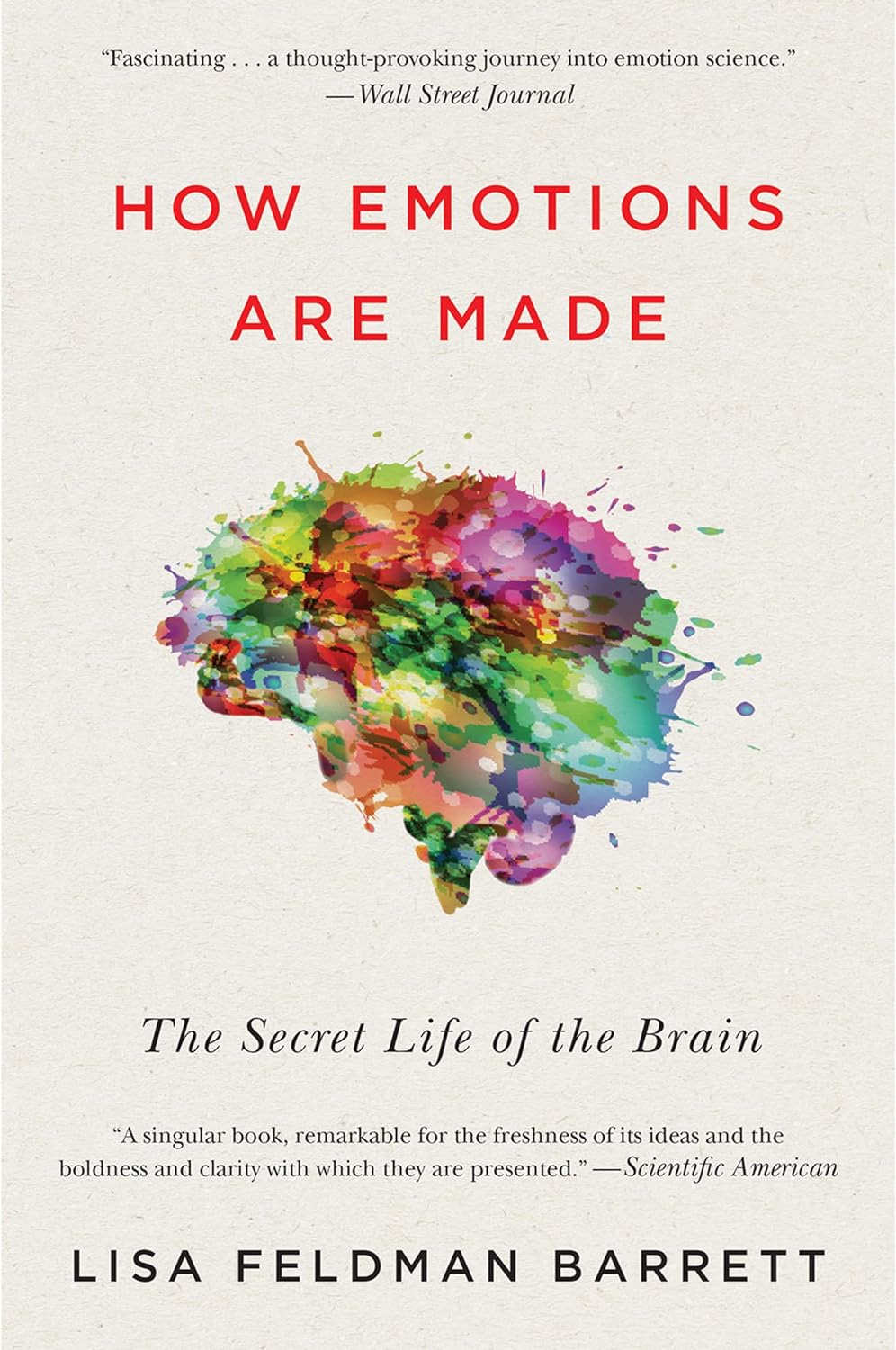Emotion: "just electrical activity in my head"
Neuroscientist Lisa Feldman Barrett, PhD, on calling emotions what they really are
Hi, dear friends,
Our whole emotional world can sometimes seem shaped by forces out of our control.
It might seem that emotions are like the weather. Sure, we have some sense of what’s coming based on the patterns, the El Niños of our lives — Christmas joy, tax stress, annual health scan uncertainty — but also, in any given afternoon, surprise showers and drops in temperature.
It can seem as though emotions are given to us by the world.
The sigh from the person behind you in line
The car that passed you and turned in front of you
The silence from a co-worker
The five-figure bill that came in the mail
Our days are sprinkled with stimuli that spark feelings — but often, it’s our thoughts about the stimuli that cause our feelings.
Psychologist and neuroscientist Lisa Feldman Barrett, PhD, has said:
“It feels to us like emotions happen to us. Like we are basically the victims of circuits that trigger and that hijack us and cause us to do and say and feel things that we would rather not. But actually, your brain is making emotions on the spot as you feel them.”
Figuring out what you are feeling, on a specific and personal level, and investigating why can be so helpful.
Naming a specific emotion and the thought or stimuli behind it allows you to
… see the feeling more clearly.
… put it into context. (Maybe, you always feel anxiety when you hear this song, because it reminds you of a stressful period)
… separate yourself from it, sort of float about it, and observe yourself experiencing this (the fancy term for this is self-distancing)
… decide to think about the situation differently — and therefore, feel about the situation differently, too.
“Your brain is a meaning maker”
I wrote about emotions once before (hmm, maybe this is an annual January reflection…):
I was reminded about emotions this week after listening to a terrific podcast episode with Lisa Feldman Barrett, the psychologist and neuroscientist quoted earlier, and host Adam Grant, an organizational psychologist and author.
This part especially caught my attention, after Adam remarks that he loves how Lisa doesn’t take her emotions seriously.
Lisa replies:
“Oh, I take my emotions very seriously. I just don’t take them as obligatory or necessarily given.”
“Emotions are real. But they are real by virtue of the fact that your brain creates them. Your brain is a meaning maker. It is actively trying to make meaning all the time. And one of the results of that meaning making is your whole emotional life.”
“So you have more control over what you feel than you think you do. For example, when I’ve had an interaction with someone that has made me feel embarrassed, or when someone — say in faculty meeting, hypothetically — says something that makes me angry, or any kind of emotional instance when I’m feeling something and I don’t really want to be feeling it, I think to myself: This is just electrical activity in my head.”
“And you know — it completely just destroys the negative feeling. Almost instantaneously. Like flipping a light switch.”
Adam shares that he often tells his students:
“Part of emotional intelligence is realizing that you don’t have to internalize everything that you feel.”
You are still going to feel an emotion.
But you can decide to dismiss it, to carry it around with you, to let it affect your actions for the next few minutes or hours or years.
And — if you change your thoughts, that will change your emotions, and that will change your decisions.
The other major point that Lisa made in the podcast is about “Emotional Granularity” — the value of naming your emotion at a more nuanced level. Brené Brown and Marc Brackett and many others have also tapped into the many names for emotions. Let’s explore that next week.
I wonder what emotions you’ll feel today. I wonder what thoughts will cause them. I wonder if noticing will make a difference.
To our journeys,
Brianne
p.s. Here two terrific books on emotions:








Yes good book. Another one I am currently reading on the same topic is "The Experience Machine" by Andy Clark
"This is just electrical activity in my head" - I love that perspective, I'm writing an article 'Emotions as Data' at the moment and have Lisa Feldman Barrett's book waiting to be read to help validate the perspective I'm taking. I'm currently reading her other book, Seven and a Half Lessons About the Brain which is fascinating.